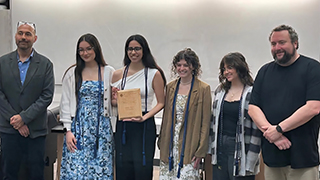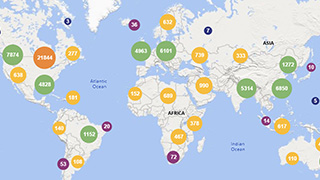Protect Your Research from Social Engineering
Monday, October 13, 2025
 Social engineering is one of the most common threats facing universities today, and
phishing is its most frequent form. These attacks use deception to manipulate people
into revealing sensitive information or granting access to secure systems. They do
not just target personal accounts; they also put academic work and research data at
risk.
Social engineering is one of the most common threats facing universities today, and
phishing is its most frequent form. These attacks use deception to manipulate people
into revealing sensitive information or granting access to secure systems. They do
not just target personal accounts; they also put academic work and research data at
risk.
At Seton Hall, research is more than data; it represents innovation, discovery and the collective work of our community. That makes it a prime target for cybercriminals seeking to exploit valuable ideas and intellectual property. As we enter Week 3 of Cybersecurity Awareness Month, the Department of Information Technology is sharing common phishing scams and practical steps you can take to protect your work.
Types of Phishing Scams
-
Email Phishing: Attackers send emails that appear to come from trusted sources, often containing links to fake login pages or attachments with malware.
-
Spear Phishing: Highly targeted scams that use personal details about you, your department or your research to make messages appear legitimate.
-
Smishing: Fraudulent text messages that attempt to trick you into clicking harmful links or providing personal information such as bank details or university credentials.
-
Vishing: Phone calls from scammers pretending to be Service Desk staff, financial institutions or even coworkers who use urgency to pressure you into sharing information.
- QR Code Phishing: Malicious QR codes that redirect you to unsafe websites or fake portals designed to steal your login credentials.
Keep Your Research Secure
-
Verify identities and messages: Attackers may pose as colleagues, funding agencies or journal editors. Always confirm sender details before sharing drafts or datasets. Does the display name match the email address? Is it from a trusted domain rather than a free service like gmail.com? If a message seems unusual or unexpected, treat it as suspicious.
-
Question unsolicited requests: Be cautious of unexpected emails that ask for drafts, credentials or access to proposals and funding documents. Contact the sender directly through an official channel to verify authenticity.
-
Secure your data: Store research files on Seton Hall approved platforms, like OneDrive and SharePoint. Avoid using personal email or unencrypted drives for unpublished work. Review shared permissions regularly and remove outdated access.
-
Use strong authentication methods: Enable multi-factor authentication (MFA) on all of your accounts to add an extra layer of protection.
-
Report incidents immediately: If you click a suspicious link or share information with a potential phish, change your password right away and contact the Technology Service Desk to open a ticket for IT Security to investigate.
Categories: Science and Technology





